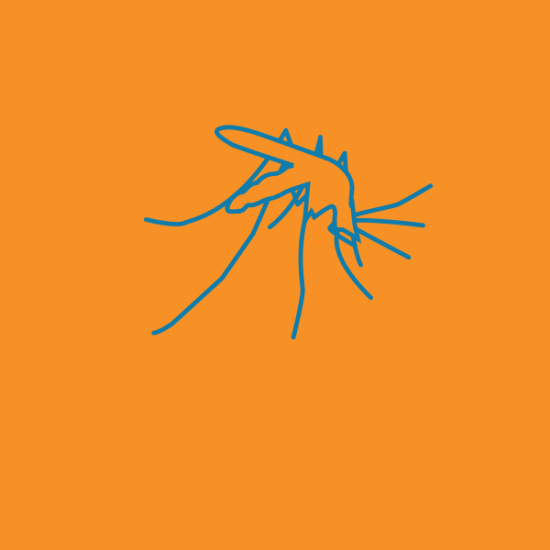
'It wouldn’t be the first time that fear of birth defects altered American attitudes on abortion'
When the mosquito-borne Zika virus began burning through Latin America early this year, the women of the region were left with a choice that was no choice. Zika infections in pregnancy can result in children born with a neurological defect called microcephaly, which causes severe brain damage and dooms some babies born with it to die in their first year. Abortion is either illegal or severely restricted in nearly all Latin American countries—according to the Guttmacher Institute, fewer than 3% of women in Latin America and the Caribbean have broad legal access to abortion. That means most infected pregnant women have little choice—legally—but to bring their pregnancies to term.
[time-brightcove not-tgx=”true”]
There was evidence that many Latin American women, fearful of Zika, would have wanted to explore the option of abortion if they could. Recent research published in the New England Journal of Medicine found an up to 108% increase in requests for abortifacient medication in Zika-affected countries where abortion is restricted, via a nonprofit that tries to provide access to the drugs even in the face of legal restrictions. Still, there have been more than 2,000 confirmed Zika-related cases of microcephaly—and probably more—in Latin America.
When it became clear that Zika was making its way into Southern U.S. states like Florida, there were fears that the U.S. could see a similar wave of microcephalic births. The difference is that, in theory, U.S. women have access to legal and safe abortion. Yet in those states that are the most vulnerable to Zika—including Texas, Florida, Mississippi and Louisiana—access to abortion has been repeatedly cut back, and even banned later in pregnancy. Since microcephaly is rarely identified in the first trimester, those restrictions have made Zika one more battleground in the decades-long war over abortion in the U.S.—a war whose outcome will depend in part on whether Donald Trump or Hillary Clinton appoints the next Supreme Court Justice.
The calendar matters when it comes to both Zika and abortion. Although women can be tested early in pregnancy for the Zika virus, which is often asymptomatic, doctors have no way of knowing for sure that a Zika infection will lead to birth defects until the fetus has developed to about 20 weeks, when ultrasound exams can begin to pick up on the telltale sign of microcephaly: an unusually small head. The dilemma for American women is that taking steps to end the pregnancy at that point would be considered a late-term abortion, which 15 states have outlawed.
That leaves pregnant women in those states with a near impossible choice should they contract or even suspect they have contracted Zika: they either abort the fetus earlier in their pregnancy, while it is legal but before they have evidence of microcephaly, or roll the dice and hope for the best.
If antiabortion activists have their way, those late-term restrictions will eventually extend to all 50 states. On the surface, that’s a policy change that most Americans would support. Polls have consistently shown that while a majority of Americans support the right to an abortion during the first trimester, that support drops precipitously the further along a pregnancy is. A recent Harvard-STAT poll found that only 23% of Americans believed a woman should have access to an abortion after 24 weeks.
But as the threat of Zika in the U.S. hits home, those hard lines have begun to soften. That same poll found that support for abortion access after 24 weeks more than doubled, to 59%, if a woman is told her baby has a serious risk of microcephaly. And while support was higher among Democrats, 48% of Republicans surveyed were also in favor of access.
It wouldn’t be the first time that fear of birth defects altered American attitudes on abortion. Like Zika, rubella is mostly harmless for adults but can cause severe birth defects when pregnant women are infected. A major outbreak of the disease in the mid-1960s led to 2,000 newborn deaths and 20,000 babies born with congenital rubella syndrome, which can cause deafness, brain defects, heart problems and more. The awareness of that risk—and the willingness of middle-class women to talk in the media about their decision to terminate pregnancy rather than risk fatal birth defects—helped push abortion into the mainstream a decade before Roe v. Wade.
It’s still too early to know whether Zika will produce similar changes around the politics of abortion in the U.S., since only a small number of U.S. women have so far contracted the virus. And while Hillary Clinton and Donald Trump are as opposed on abortion as they are on most subjects—Clinton is against federal efforts to ban abortions after 20 weeks, while Trump has said he would support repealing Roe altogether—neither candidate was asked about the issue in the first two debates. Perhaps the early lesson of Zika, in Latin America and the U.S., is that feelings about abortion are much more conditional—and personal—than advocates on either side realize or want to admit.
TIME Ideas hosts the world's leading voices, providing commentary on events in news, society, and culture. We welcome outside contributions. Opinions expressed do not necessarily reflect the views of TIME editors.